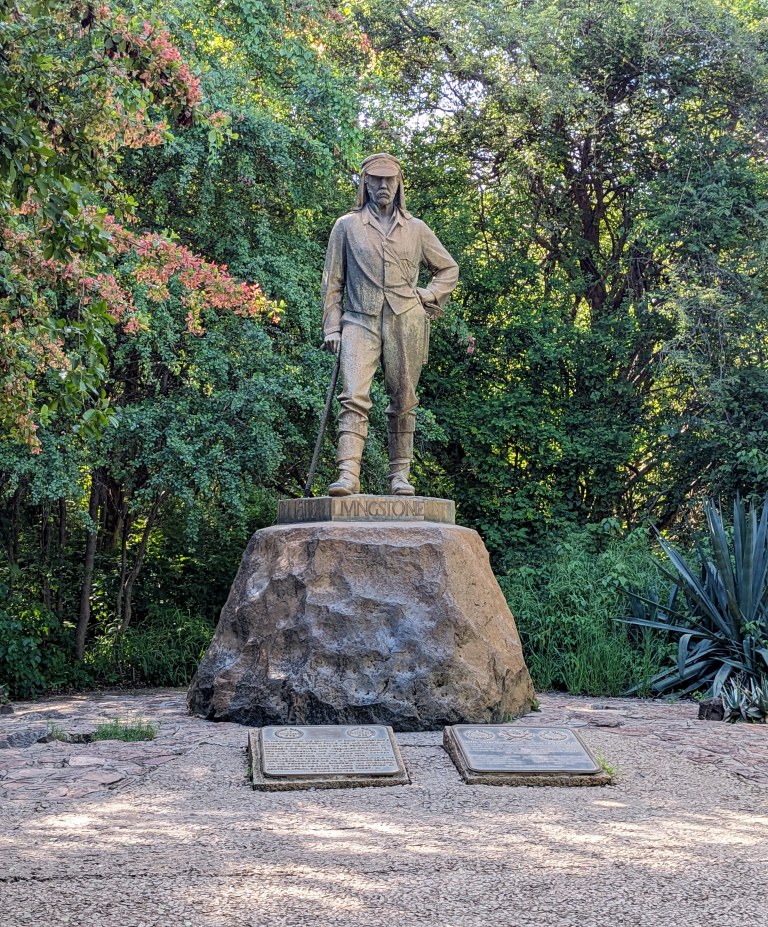
Reflections on Road Scholar’s Southern Africa Birding Safari, 19 Jan – 2 Feb 2024
18 February 2024
This statue of Scottish explorer Dr. David Livingstone stands in Zimbabwe at the western end of Victoria Falls. After African independence, European monuments were removed and European towns renamed but Livingstone’s statue still stands, the falls still bear the name he gave them(2), and the nearest town across the river is Livingstone, Zambia.
Twenty years ago, two attempts were made to remove Livingstone’s statue but “resistance to the removals from the local community has ensured that Livingstone’s statue remains where it was first erected, gazing sternly out towards Devil’s Cataract.(1)”
Our Zimbabwean guide pointed to a word carved on the monument that is key to Livingstone’s legacy in Africa.
Liberator.
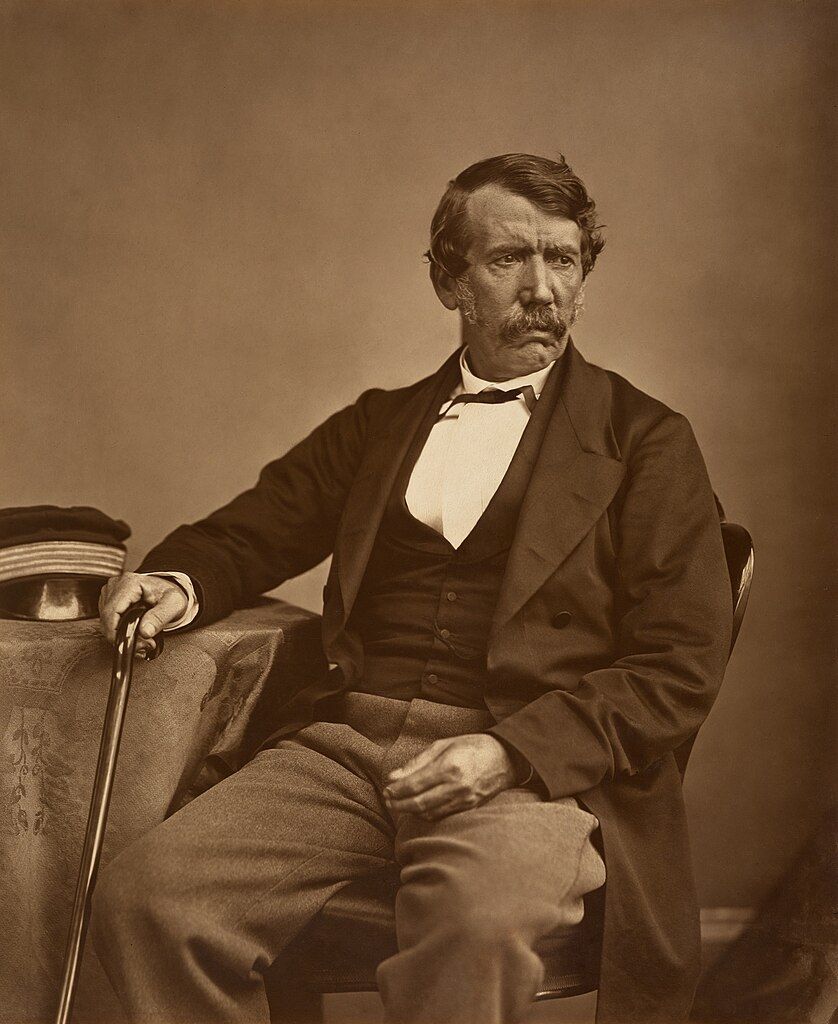
In America we think of Livingstone as a great explorer but in Africa it is his never-ending fight to end the slave trade that holds him in African hearts. Livingstone went to Africa as a Christian missionary doctor and fell in love with exploring, ultimately mapping three long journeys in southern and eastern Africa covering 40,000 miles(2).
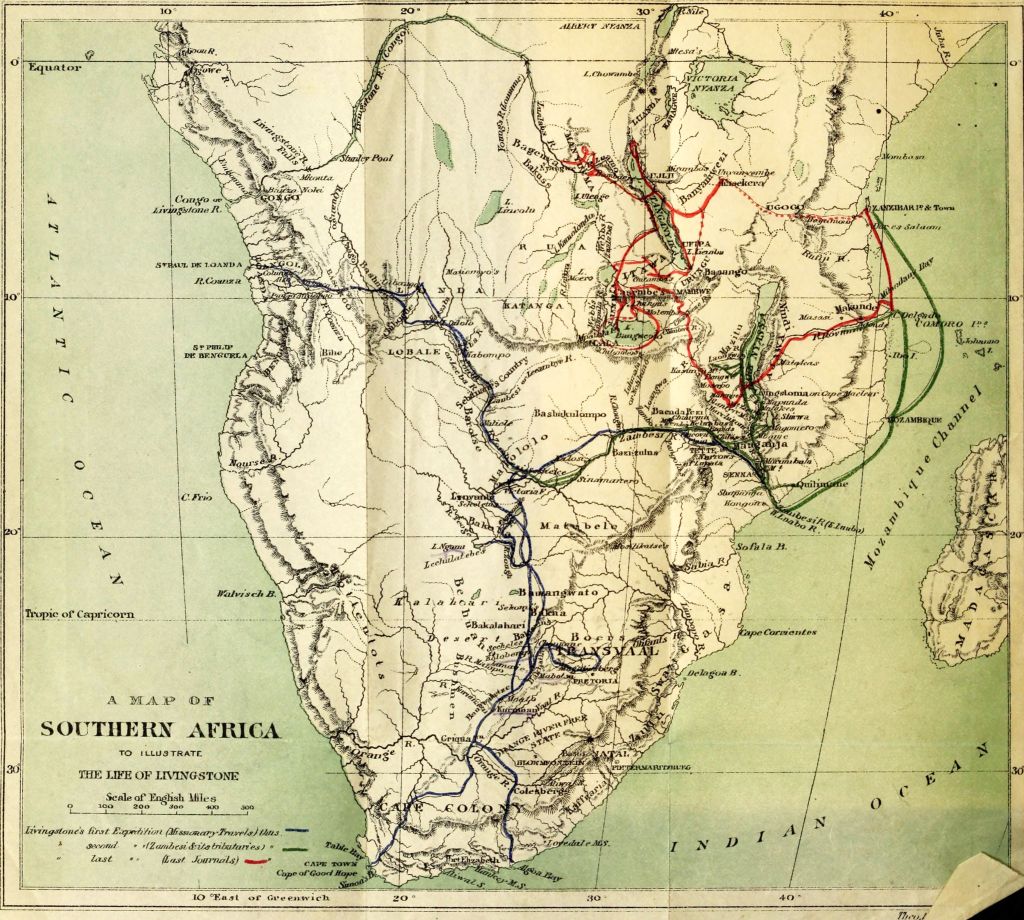
During his second expedition to the Zambezi River (1858-1864) he witnessed the horrors of the East African Arab-Swahili slave trade and vowed to end it. Men, women and children were captured in the interior and marched to trading posts on the Indian Ocean coast, one of which was Zanzibar a British colony ruled by Arabs.
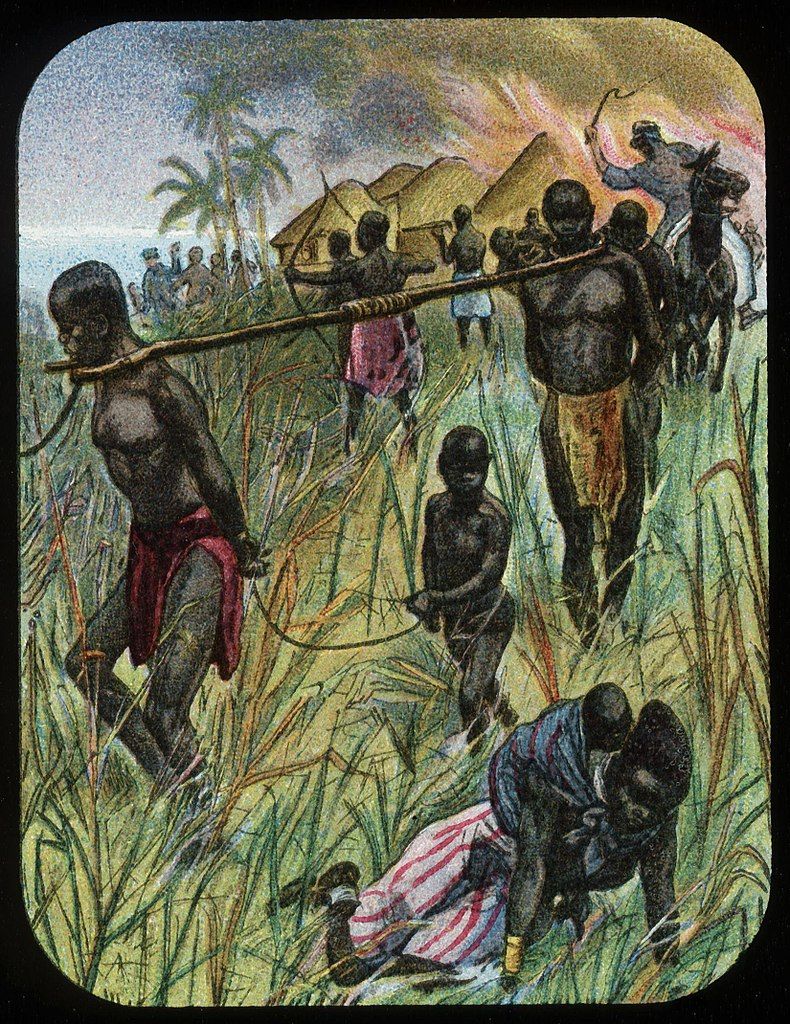
Livingstone reasoned that if he became famous for finding the source of the Nile he could influence the British government to end the slave trade so he returned to Africa in 1866 to accomplish both goals.
Five years later, in the absence of news, Livingstone was presumed dead or lost. Instead he was still exploring, very weak and sick with malaria and without quinine to treat it because someone stole his medical kit. Meanwhile he wrote letters to Britain describing the slave trade but the slavers were the only ones available to carry his letters to the coast. Knowing that Livingstone was against slavery, they delivered only one of his 44 letters.
Livingstone’s disappearance was such a great mystery that the New York Herald sent journalist Henry Morton Stanley to Africa where he caught up with Livingstone at Ujiji in October 1871 and said, “Dr. Livingstone, I presume.”
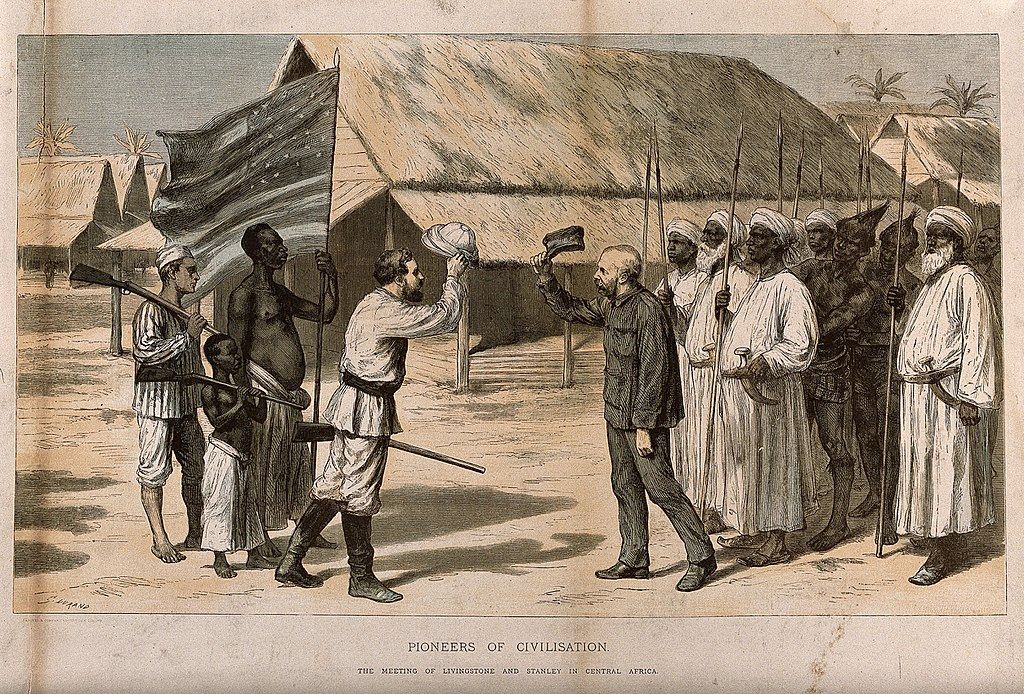
Livingstone did not want to leave Africa so Stanley took Livingstone’s dispatches to Britain where they exposed the appalling massacres and cruelty of the slave trade.
British reaction was swift but Livingstone did not live to see it. “One month after his death, Great Britain signed a treaty with Sultan Barghash of Zanzibar, halting the slave trade in that realm. The infamous slave market of Zanzibar was closed forever.(2)“
More than any of his contemporaries, Livingstone succeeded in seeing Africa through African eyes.
— Princeton University Library: David Livingstone, 1813-1873
p.s. In the U.S. most of us don’t realize that the West African slave trade that our country participated in was not the only source of slaves. Britain outlawed the trans-Atlantic slave trade in 1807 but it continued elsewhere. For instance, Mauritania in West Africa did not impose penalties on its local slave trade until 2007. Today slavery persists in some parts of Africa. Read about Slavery in Contemporary Africa here.
(credits are in the captions) Footnotes on sources.
- Information on Dr. David Livingstone’s Statue, Siyabona Africa website.
- Summary of Livingstone’s life, Princeton University Library.
- “Victoria Falls was the only site in Africa that Livingstone named with English words.”
You had an amazing trip. I know much of the history you spoke about. My ex husband grew up in Africa as his parents were missionaries there. My husband spent school years in English boarding schools in Zimbabwe. It was not a good experience for him. The schools were harsh. But his parents needed to go into the “bush” to minister and assist with illnesses and starvation in the various tribes. All so very sad. My ex in-laws were Salvation Army ministers, highly educated and all around good people. I love reading your daily message. Thank you so much. Sally
I appreciate the information on this post! Thank you!